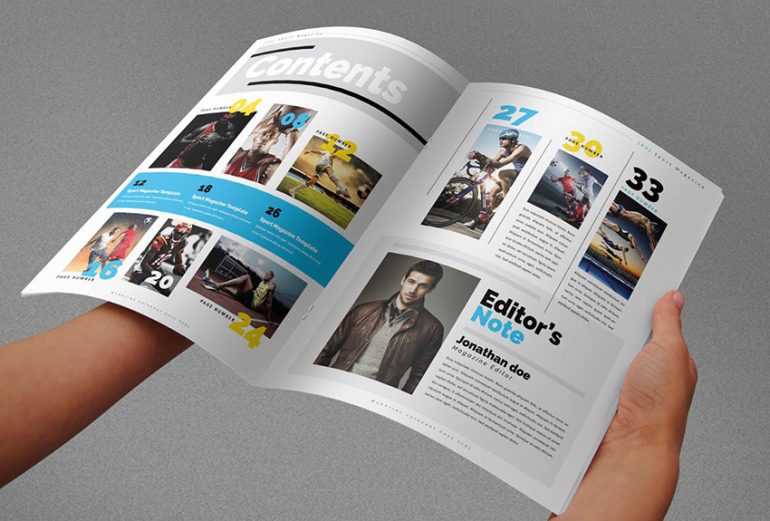An ever-changing, fast-paced environment, the world of journalism is a field that many young people aspire to break into. But where does one start, seemingly at the bottom of such a competitive ladder? In this blog post, we’ll be exploring exactly what journalism is and the various ways in which you can begin your career in this life-changing field. If you’re an inquisitive, passionate person with the ability to persevere, a career in journalism could be ideal for you.

What is Journalism?
Journalism is the act of reporting news. This can be done through writing articles, taking photos, or even making videos. Journalists typically work for a news organization, such as a newspaper, magazine, or website. Of course, journalists may also work in presenting news via TV or radio.

For many people, the word “journalism” conjures up images of reporters and photographers running around with notebooks and cameras, trying to get the scoop on a story, using any means to get that scoop- no matter how moral these means are. But this is not an accurate representation of what journalism is, or how many journalists conduct their work. Journalism is about telling stories that matter, whether they be investigative pieces that expose wrongdoing or human interest stories that highlight the triumphs and struggles of everyday people.

Journalism is also about giving a voice to the voiceless and holding those in power accountable. It’s a noble profession that can make a real difference in the world.
The Different Types of Journalism
So, you’re reading this because you’re interested in becoming a journalist. Whilst it is crucial to become as well-rounded as possible in such a competitive industry, it is still useful to consider what type of journalism you’d like to start out in.
In the broadest of terms, journalism can be split into three categories: print journalism, broadcast journalism and online journalism. Print journalism takes place through the medium of writing, therefore includes newspapers and magazines, for example. Broadcast journalism is defined as taking place over broadcasted mediums, therefore includes TV and radio. Finally, online journalism takes place over the internet, including blog posts and articles, for example.

More specifically, there are many different types of journalism that cater to different audiences and interests. It’s safe to say that you’ll be spoiled for choice by the variety that journalism has to offer! For example, there’s investigative journalism, which looks into things like corruption and crime. There’s also business journalism, which covers the stock market and other financial news. And then there’s sports journalism, which covers everything from local games to international tournaments. If you’re interested in getting into journalism, it’s important to research the different types of journalism out there to figure out which one best suits your skillset and interests.
How to get into the industry
1) Further education
The easiest way to get into journalism (or perhaps a better phrase- the method by which your chance of success will be elevated) is through pursuing higher education. This can be through achieving an undergraduate degree in journalism, or by completing an undergraduate degree in a related subject (for example English or Media) and then rounding it off with a postgraduate degree in journalism. Once you’ve become a graduate, you’ll also be able to apply for entry-level/ junior positions with much more ease.

Going to university is also a fantastic opportunity to chase after other activities that will help you significantly on your path to becoming a journalist.
2) Gain work experience
An example of an activity that you could pursue in university is the student newspaper. In addition, there will almost definitely be other societies and clubs that you can get involved with to gain that essential work experience that a lot of employers will be looking for in a graduate. Be sure to take advantage of as many opportunities as possible to build up your portfolio and CV.

Furthermore, many universities offer a sandwich-type course, meaning at least a year working within the industry for the purpose of gaining experience. Courses like these are highly valuable, in that you have the chance to prove yourself worthy to a company, obtaining the chance of a job offer after a placement.
If you can get this experience early enough to start building it up before the job hunt, you’ll push yourself that much further in front of your competition.
3) Build up a portfolio
From this work experience that you pick up, you can begin to create a portfolio of your work that any employer would love to see upon considering you. If you’re not engrossed by the university-route, you can always get involved in some local voluntary work such as blog-writing, social media advertising or any other related work. You can also start up a blog of your own! Just make sure to keep all copies of your work in a safe place where you can show them off in the future.
4) Network
Going back to the idea of pursuing university and getting into student societies, this is also a brilliant opportunity to build up and maintain relationships with those who are already in the industry (as well as those who may also get into the industry) for the help and connections they may be able to provide to you later in your career.

A lot of people tend to shy away from networking, feeling guilty about how one-sided it feels to potentially “use” someone for what they can give you. What a lot of people seem to forget is that you are also offering them your unique skill set, knowledge and perspective. A lot of the time, you will be just as valuable to your connections as they are to you!
5) Apprenticeships
Increasingly, employers seem to be more open to accepting new recruits who have come from the apprenticeship route. The bonus of taking this direction is that you will get work experience, classroom-based teaching and a salary all in one, whilst also achieving a recognised qualification at the end.
6) Engage in Freelance work
Rather than employing writers, many companies outsource their work to freelance writers and journalists. Making accounts on freelancing platforms (and hopefully securing some work!) is a great way to earn a side-income alongside your studies or other part-time work. This will also help to continue growing that portfolio.

7) What Say You
Here at Nuse media, our project: What Say You is a great opportunity to get started in journalism. This will be of particular interest to you if you’re keen on broadcast journalism. Here, you can submit a Piece to Camera and be entered into a competition. What’s more, this will also be a great and easy piece to add to your portfolio.
Nuse Media’s tips & tricks
Like a lot of careers, the more you can secure under your belt, the better your chance of success will be. Here are a few extra bits and pieces you can consider doing to advance your knowledge in this field.
1) Understand the industry
The best way to develop a good understanding of how this industry works is to jump straight in at the deep end! Experience everything from newspapers to online articles to TV shows to become familiar with the big voices and what makes their work successful. This is also a chance to develop your skills in critical analysis; evaluate the pieces you find in terms of their positives and negatives, what you would do differently and even (if applicable!) analyse the truthfulness behind what is being said and consider information from different perspectives.

2) Develop your knowledge of English grammar
Having a strong grasp on English grammar and spelling is essential to succeed in this field. Think of all the complaints that companies like the BBC receive every single year because somebody used the wrong “your” or doesn’t pronounce their “t”‘s! With this also comes the knowledge of catering your style to different audiences. For instance, broadcast journalism tailored towards younger audiences probably won’t be too bothered about a ‘t’ not being pronounced! Much like skills in critical analysis, this skill (as well as other essential skills such as strongly developed short-hand skills) can be achieved through university education. However, if you are not keen on pursuing higher education, there are many resources available on the internet and in public libraries that can help with this.

3) Address your weaknesses
Addressing and working on your weaknesses is the best route to becoming a more well-rounded journalist. Having this quality is something that is strongly desired in any industry, even more so in journalism. Where there are tasks that you are not as keen on or feel that you are not so strong in, tackle these and do them more often! Practice makes progress.
4) Practice writing applications
Learning how to effectively tailor each CV and cover letter to each employer that you apply for is a good way to make sure you stand out from the crowd. Make sure you list all the skills that the employer has stated that they are looking for in a recruit, as well as showing that you are genuinely interested in the specific company you’re applying for in your cover letter. This may seem a little tedious and time-consuming when lower-level jobs may accept a more generalised CV. However, this is an incredibly competitive industry, therefore employers look for the candidates who show that they care.

All in all, it is clear that pursuing a career in journalism is a great and rewarding option for young people. Not only can you make a difference and report on important stories, but you can also learn the craft of storytelling, writing and creating engaging content. With hard work, dedication, patience and an open mind to learning new skills – anyone can be successful in this field. We hope that this article has been useful in providing some of the first steps to becoming a journalist. If you’re interested, let us know your thoughts and don’t forget to consider our project, What Say You!
























Post comments (0)